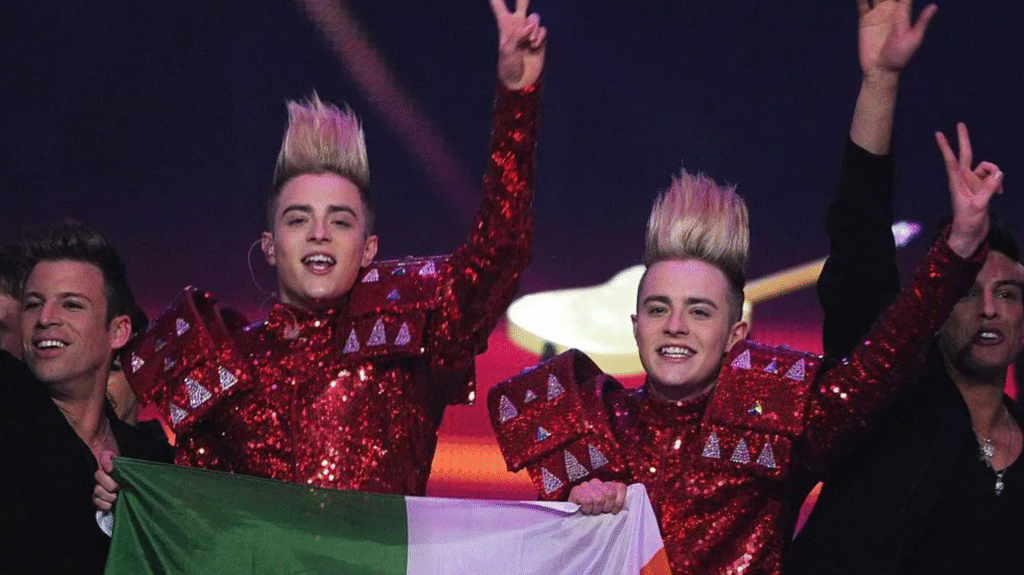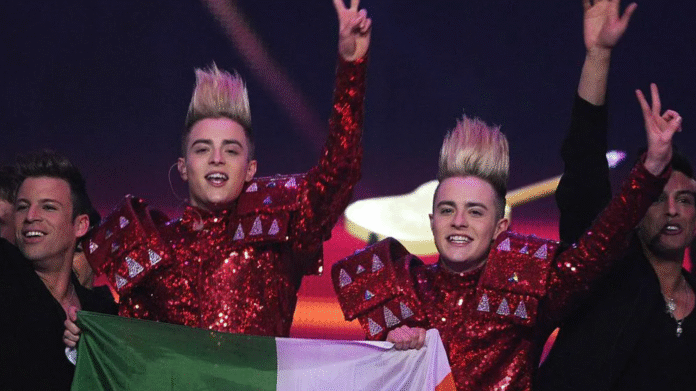Ireland Eurovision Withdrawal Threat Sparks Global Debate
The Ireland Eurovision withdrawal threat has sent shockwaves through Europe and beyond. In a bold statement, Ireland’s national broadcaster RTÉ announced it will not participate in the 2026 Eurovision Song Contest if Israel is allowed to compete.
This unprecedented move links the world’s most flamboyant song competition to one of the most polarizing global conflicts. Eurovision, usually a celebration of music, unity, and culture, now finds itself entangled in heated geopolitical tensions.
RTÉ justified its position by pointing to the “unconscionable” civilian deaths in Gaza, saying Ireland cannot celebrate music on a global stage while ignoring ongoing suffering.

Ireland Eurovision Withdrawal Threat: Ireland’s History With the Contest
Ireland has a deep connection with Eurovision. The country has won seven times, more than almost any other nation, with iconic performances by legends like Johnny Logan. However, Ireland’s last victory dates back to 1996, making its presence more symbolic than dominant in recent years.
This history makes the Ireland Eurovision withdrawal threat even more significant. It signals that the contest is not just about glitter and ballads but also about values and political stances.
Ireland Eurovision Withdrawal Threat: The Gaza Connection
RTÉ highlighted the humanitarian crisis in Gaza as the core reason for its strong stand. According to international reports, thousands of civilians, including children, have lost their lives in the conflict.
RTÉ expressed concern not only over civilian casualties but also over the targeted killing of journalists, the restrictions on media access to Gaza, and the plight of remaining hostages.
This makes Ireland one of the few countries explicitly linking Eurovision participation to human rights concerns in the Middle East.
Ireland Eurovision Withdrawal Threat: Not Alone in Protest
Ireland isn’t standing alone. Other European nations have echoed similar sentiments.
-
Slovenia’s broadcaster RTVSLO announced it will also withdraw if Israel participates.
-
Spain’s Culture Minister Ernest Urtasun suggested his country may follow suit.
-
Iceland’s broadcaster RÚV said its involvement depends on the EBU’s decision regarding Israel’s participation.
These statements show that the Ireland Eurovision withdrawal threat could be the beginning of a much larger protest movement across Europe.
Ireland Eurovision Withdrawal Threat: Eurovision Organizers Respond
Martin Green CBE, the Director of the Eurovision Song Contest, acknowledged the deep concerns. He emphasized that the European Broadcasting Union (EBU) is consulting with all members to decide how to handle Israel’s participation in the 2026 event, scheduled for May in Vienna.
He stated:
“It is up to each member to decide if they want to take part in the contest, and we would respect any decision broadcasters make.”
This diplomatic response suggests that while the EBU doesn’t want to ban Israel outright, it is mindful of the mounting political pressure.
Ireland Eurovision Withdrawal Threat: A Growing Movement
Calls to exclude Israel are not new. Ahead of the 2025 contest, more than 70 former Eurovision contestants signed a letter urging organizers to ban Israel.
RTÉ itself raised the issue with the EBU earlier, with Director General Kevin Bakhurst describing himself as “appalled” by the humanitarian toll in Gaza. He acknowledged the challenge of maintaining journalistic objectivity while also responding to the severe political pressures tied to Israel’s state broadcaster, Kan.
The Ireland Eurovision withdrawal threat shows how unresolved grievances are now crystallizing into formal boycotts.
Ireland Eurovision Withdrawal Threat: The Larger Picture
Eurovision has always prided itself on being non-political, but history shows otherwise. From Russia’s exclusion after its invasion of Ukraine to heated debates over LGBTQ+ rights, the contest often mirrors global conflicts and cultural shifts.
The Ireland Eurovision withdrawal threat places Eurovision at a crossroads. Should the competition remain a stage for music alone, or should it reflect the moral and political stances of its participants?

Ireland Eurovision Withdrawal Threat: Public Reaction
Public opinion is deeply divided. Some fans believe Eurovision should be a safe space for culture, free from geopolitics. Others argue that ignoring war and humanitarian crises while celebrating “unity through music” feels hollow.
On Irish social media, many praised RTÉ’s decision as a courageous stand for human rights, while others worried about politics overshadowing creativity and talent.
Ireland Eurovision Withdrawal Threat: Possible Outcomes
Several scenarios may unfold in the months ahead:
-
EBU allows Israel to compete → Ireland, Slovenia, and potentially Spain and Iceland withdraw.
-
EBU bans Israel → Israel and its allies strongly protest, potentially triggering new controversies.
-
A compromise is reached → Israel participates with restrictions or conditions, though this may not satisfy critics.
Regardless of the outcome, the Ireland Eurovision withdrawal threat ensures Eurovision 2026 will be remembered not just for its songs but for its political context.
Conclusion: Ireland Eurovision Withdrawal Threat and Its Global Impact
The Ireland Eurovision withdrawal threat has redefined the narrative around Eurovision. What began as a colorful celebration of unity and culture is now entangled in questions of justice, morality, and global conflict.
Ireland’s stance may inspire more countries to take similar positions, pushing Eurovision into uncharted territory. As deadlines for broadcaster confirmations approach in December, all eyes will be on the EBU’s final decision.
For now, one thing is clear: Eurovision 2026 is already shaping up to be one of the most controversial editions in its history.

